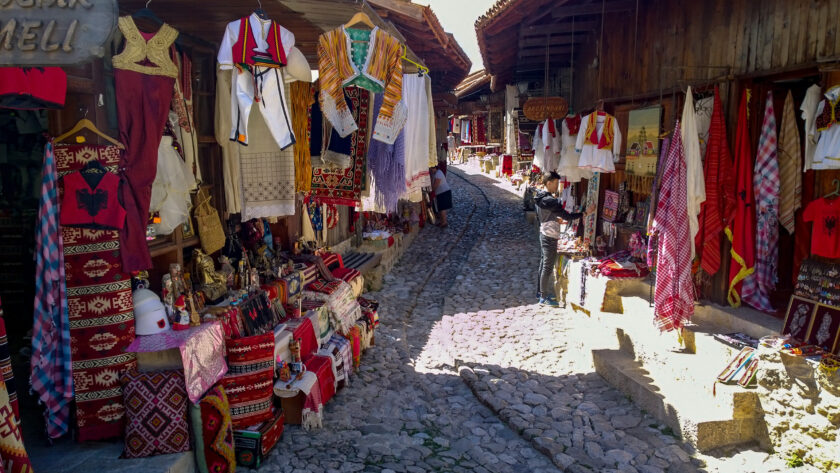Albania, a small country nestled in the Balkans, boasts a history that stretches back to ancient times, and its people have a vibrant cultural heritage that they have proudly preserved for centuries.
The customs and traditions of the Albanian people provide a fascinating glimpse into their way of life, revealing a deep-rooted sense of community, honor, and pride.
From colorful festivals to unique wedding rituals, the customs of the Albanian people reflect their rich history, diverse regional influences, and unyielding spirit.
1. Hospitality: Welcoming Strangers as Friends
One of the most renowned customs among Albanians is their exceptional hospitality, which has become an integral part of their national identity.
The tradition of warmly welcoming guests is deeply ingrained in Albanian culture, rooted in the ancient code of conduct known as the Kanun.
According to this code, guests are considered a blessing, and it is the host’s duty to ensure they are treated with utmost respect and kindness.
Whether visiting a family home in the remote villages of the mountains or a bustling city, guests can expect to be showered with an abundance of food, drinks, and heartfelt hospitality.
2. Besa: Keeping Promises at All Costs
At the heart of Albanian society lies the concept of Besa, a sacred code of honor that dictates the importance of keeping promises and protecting one’s honor at all costs.
This unwritten law is deeply interwoven into the fabric of Albanian culture and reflects the people’s strong moral values.
An Albanian’s word is considered their bond, and breaking a promise is not only a betrayal of trust but brings shame to the entire family.
Besa is not limited to personal agreements but also extends to the protection of guests, as an Albanian host will go to great lengths to ensure the safety and well-being of those under their care.
3. Traditional Clothing: A Window into the Past
Albanian traditional clothing is a treasure trove of cultural heritage, with its styles varying significantly across regions and communities.
The traditional attire is a beautiful fusion of historical influences, dating back to the Illyrians, who once inhabited these lands. Women’s clothing, in particular, is a work of art, adorned with intricate embroidery and vibrant colors that represent various symbols and motifs.
The fabrics are carefully selected and handwoven, showcasing the skill and craftsmanship of Albanian artisans.
Though modern clothing has become more prevalent in urban areas, many Albanians proudly don their traditional attire during festivals, weddings, and other special occasions, ensuring the preservation of their cultural roots.
4. Weddings: A Celebration of Love and Unity
Albanian weddings are grand, joyous affairs that bring together extended families and entire communities.
These celebrations are deeply steeped in customs and rituals that vary depending on the region and religious beliefs of the couple. One common tradition is the presentation of the dowry by the bride’s family to the groom’s family, symbolizing their love and commitment.
The wedding festivities often extend for several days, filled with music, dancing, and feasting, creating an atmosphere of jubilation and unity among the participants.
Weddings in Albania are not just a union of two individuals but a celebration of love and the strengthening of bonds within the entire community.
5. Religious Diversity: Coexistence and Respect
Albania’s history is characterized by a rich tapestry of religious diversity, with adherents of different faiths coexisting peacefully for centuries.
The majority of Albanians follow either Islam or Christianity, with Islam being the most widely practiced religion.
However, the Albanian people have embraced religious diversity with a unique sense of respect and understanding. This harmonious coexistence has deep historical roots, and religious customs and celebrations are often shared and respected across different faiths.
Albanians believe that diversity enriches their society and promotes a sense of unity among its people.
6. Summer Festivals: Preserving Ancient Traditions
Throughout the summer months, Albania comes alive with a myriad of colorful festivals that showcase the country’s ancient customs and folklore. These festivals are a cherished part of Albanian culture, and they attract both locals and visitors from around the world.
One of the most renowned is the Gjirokastër National Folklore Festival, where artists, musicians, and performers from various regions come together to share their unique talents and cultural heritage. During these festivals, traditional dance, music, and crafts take center stage, offering a glimpse into the heart of Albanian culture and fostering a sense of pride and belonging among its people.
7. Kanun: The Ancient Code of Conduct
The Kanun, a centuries-old set of laws, plays a significant role in the lives of many Albanians, especially in rural areas.
Though not officially recognized by the Albanian government, the Kanun continues to influence the customs and traditions of the people.
The code addresses various aspects of life, including family, marriage, and honor, and serves as a guide for resolving disputes and maintaining order within communities. While some aspects of the Kanun have become less prevalent in modern times, its legacy endures as a reminder of the country’s historical roots and the importance of preserving cultural heritage.
Conclusion
The customs and traditions of the Albanian people provide a captivating tapestry of their rich cultural heritage and deep-rooted values. From the warmth of their hospitality to the solemnity of their promises, Albanian customs offer an intimate glimpse into the heart and soul of this resilient nation.
By understanding and appreciating these customs, we can gain a deeper appreciation for the values that have shaped Albanian society for centuries and continue to unite its people.
Their values and traditions are strongly connected to their rich history. As the world progresses, preserving these customs becomes ever more critical in keeping the flame of the Albanian cultural heritage burning brightly. Let us celebrate the enduring customs of the Albanian people and continue to cherish the legacy they have passed down through generations.

